Venice’s overtourism plight has been making headlines over the past years, but rather than avoid the beleaguered city, tourists are encouraged to visit provided they do so in a sustainable and responsible way. Disastrous flooding in November decimated tourist numbers, and the coronavirus outbreak will be another huge blow to Italy’s tourism. But once everything calms down, the city will be determined to entice visitors back.
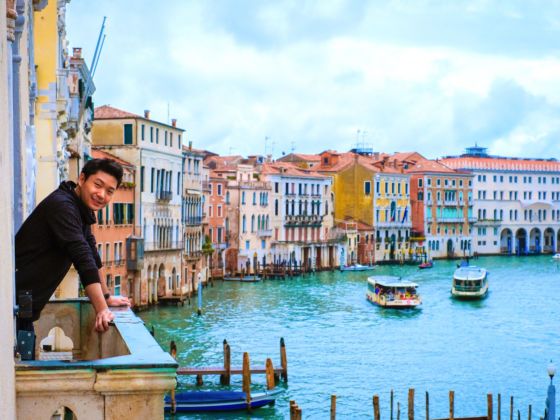

We talked to Valeria Duflot, co-founder of Venezia Autentica, a social enterprise aiming to generate a kind of tourism that benefits both visitors and residents of the city. She gives me some tips on how to visit the floating city without experiencing traveler’s guilt.
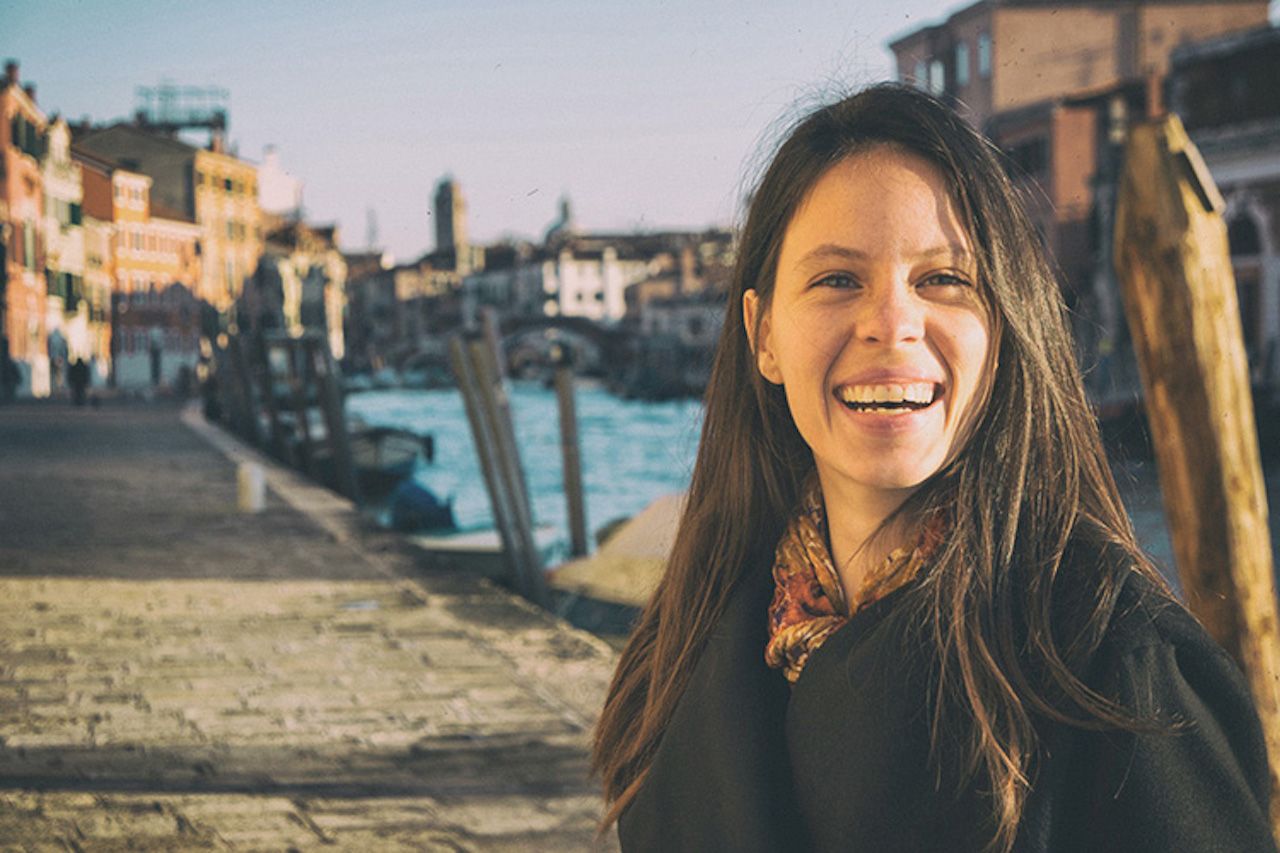
Photo: Sebastian Fagarazzi/Venezia Autentica
Duflot begins by giving me the current prognosis of the city: “Mass tourism is destroying the city where we live and travel. Venice is one of the most famous examples of the negative impact of tourism. The city is shrinking. Seventy percent of residents have left the community in the past 70 years.” Duflot explains that the current model of tourism provides little economic benefit to impoverished residents, while simultaneously “threatening their culture, identity, heritage, and environment.”
The changes required are monumental, but Duflot remains positive: “The great thing about it is that traveling in a sustainable, responsible, and ethical way is easier than people usually think and is also the best way to have a quality experience of Venice.” She calls this type of travel a “true win-win” for tourists and locals.
Here are a few tips on how to visit Venice responsibly.
Avoid cruises and big tour groups.
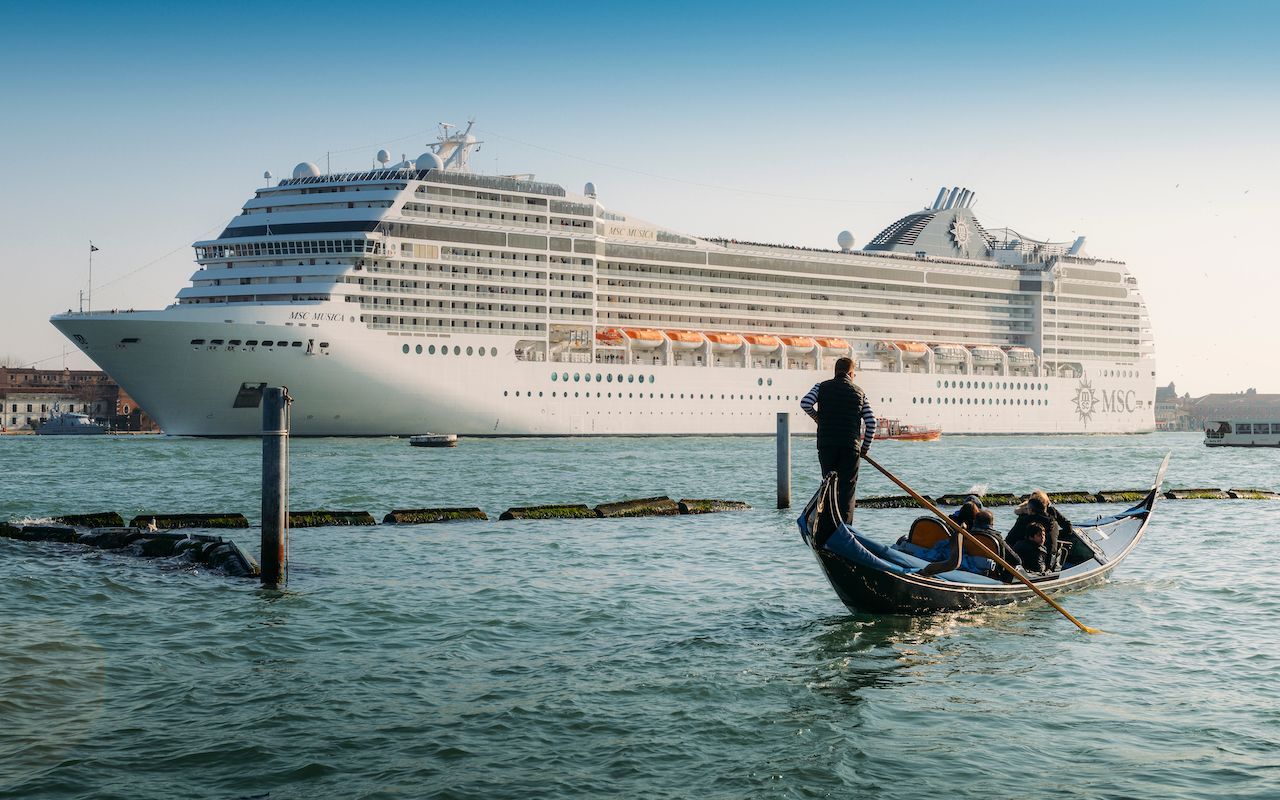
Photo: Alexandre Rotenberg/Shutterstock
Cruise ships have long been a thorn in the side of locals. They deposit thousands of tourists into the already congested streets to bask in Venice’s beauty for a few hours. In doing so, cruise ships pollute the lagoon environment, damage fragile building foundations, and put a strain on infrastructure, all with little money invested in local businesses in the process. Instead, Duflot explains, “To support the local economy and preserve the Venetian quality of life, it is important to stay away from standard pre-packaged holidays, big tours, and avoid day-tripping.”
Duflot goes on to say that visitors should try to stay overnight and “book a room in a small family-run hotel in Venice itself.” This way, she says, a valuable contribution is being made to a local business while, as a visitor, you “have the opportunity to live in Venice when we, locals, like it most: before and after the crowd is gone.”
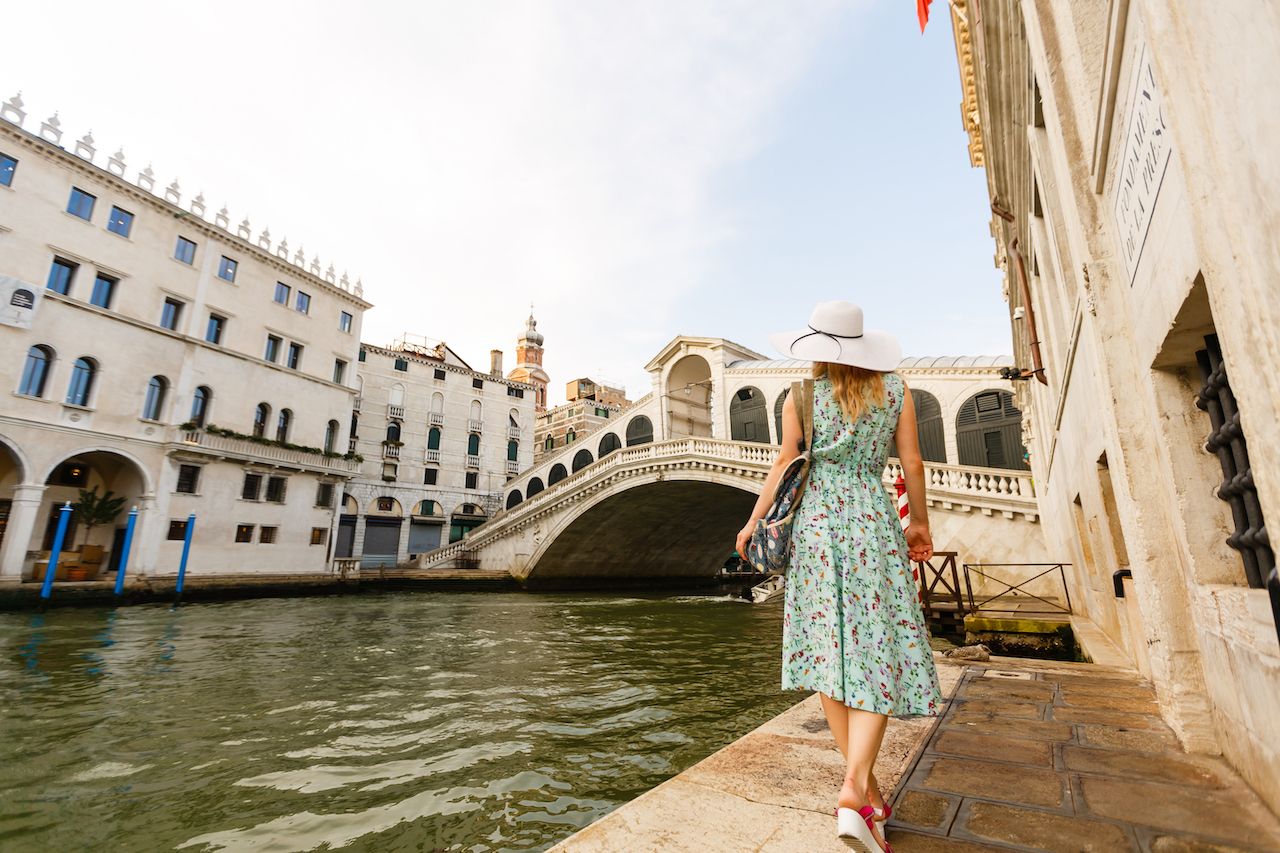
Photo: Andrew Angelov/Shutterstock
Avoiding cruises also reduces your environmental footprint. Venice’s air quality is astonishingly poor for a city with no cars. Scientists have shown toxic fumes from cruise ships that have engines running even when docked in the port are a significant health hazard. Public authorities recently announced that ships will be redirected from the Giudecca Canal that runs through the city and past St Mark’s Square. The move means ships will have less of an impact on building foundations and they will no longer be an eyesore towering over the historic city. But once docked in port, their environmental impact is unchanged. Duflot explains that by using the train instead of a plane or cruise, “you’ll cut your carbon footprint by at least a factor of three to seven times.”
Once you’ve arrived, “walking and taking public transportation or hopping on a rowing boat are great ways to explore,” Duflot enthuses. She emphasizes the pleasure of meandering around a city with no cars, though she reminds visitors that its many bridges call for comfortable footwear.
Support local restaurants and bars.
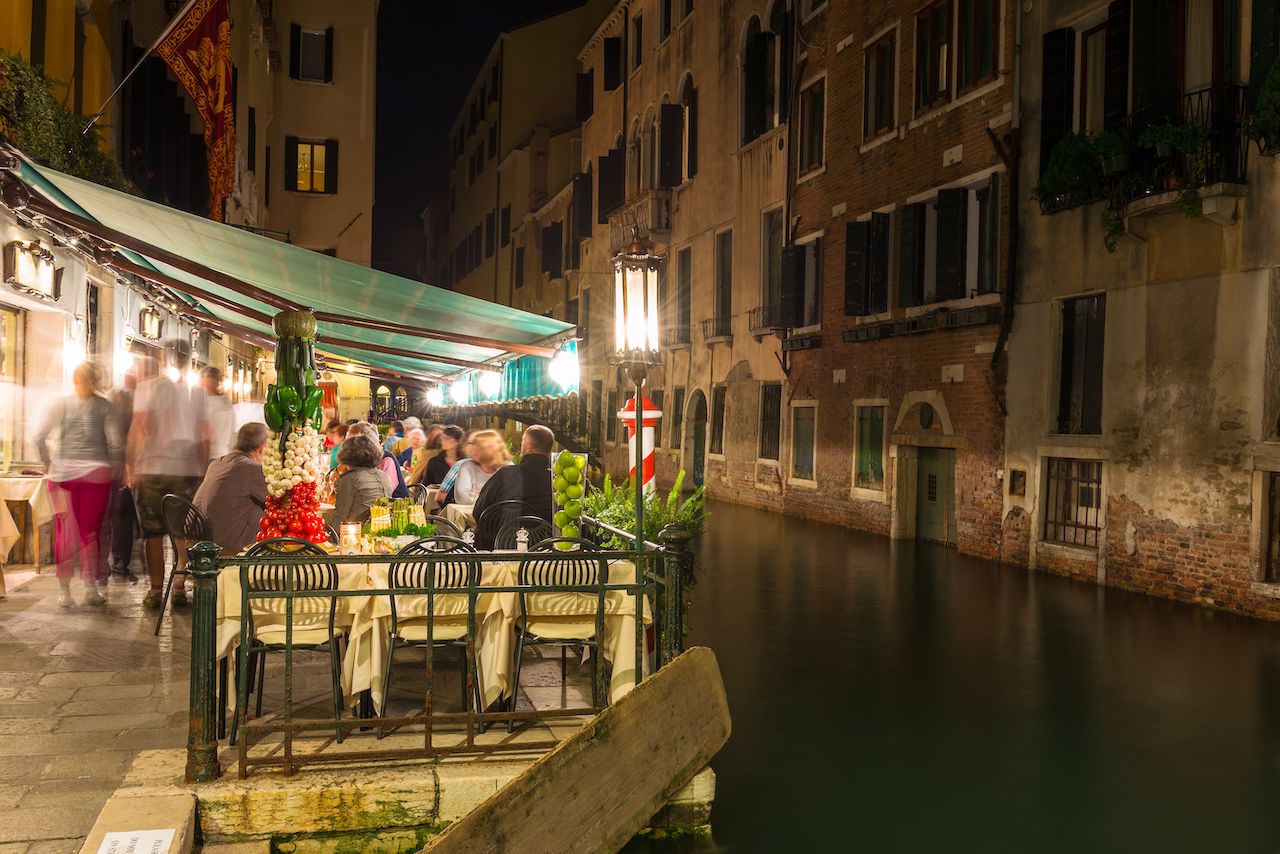
Photo: Catarina Belova/Shutterstock
Patronizing local businesses instead of supermarkets or chains for your refreshments goes a long way. Duflot explains that it supports the Venetian economy, particularly “small businesses who are providing unique high-quality products and services, respecting sustainable practices, providing jobs to the local community, and keeping local traditions and culture alive.” She reminds visitors that buying from such businesses “guarantees you both that your money will stay in the community and that you will have a truly authentic experience.” Thankfully, there is a huge number of small businesses throughout the city so you won’t be lacking options. Skip places with a long wait time in favor of something less well-known.
In the same vein, Duflot points out that you can also support the environment with your beverage choices. “A simple habit to develop everywhere you go,” she says, “is to carry a refillable bottle of water to stay hydrated and cut on plastic. In Venice, there are many free fountains around the city where you can refill your bottle with one of the best quality water in Italy, coming from the mountain!”
Buy Venetian-made souvenirs.
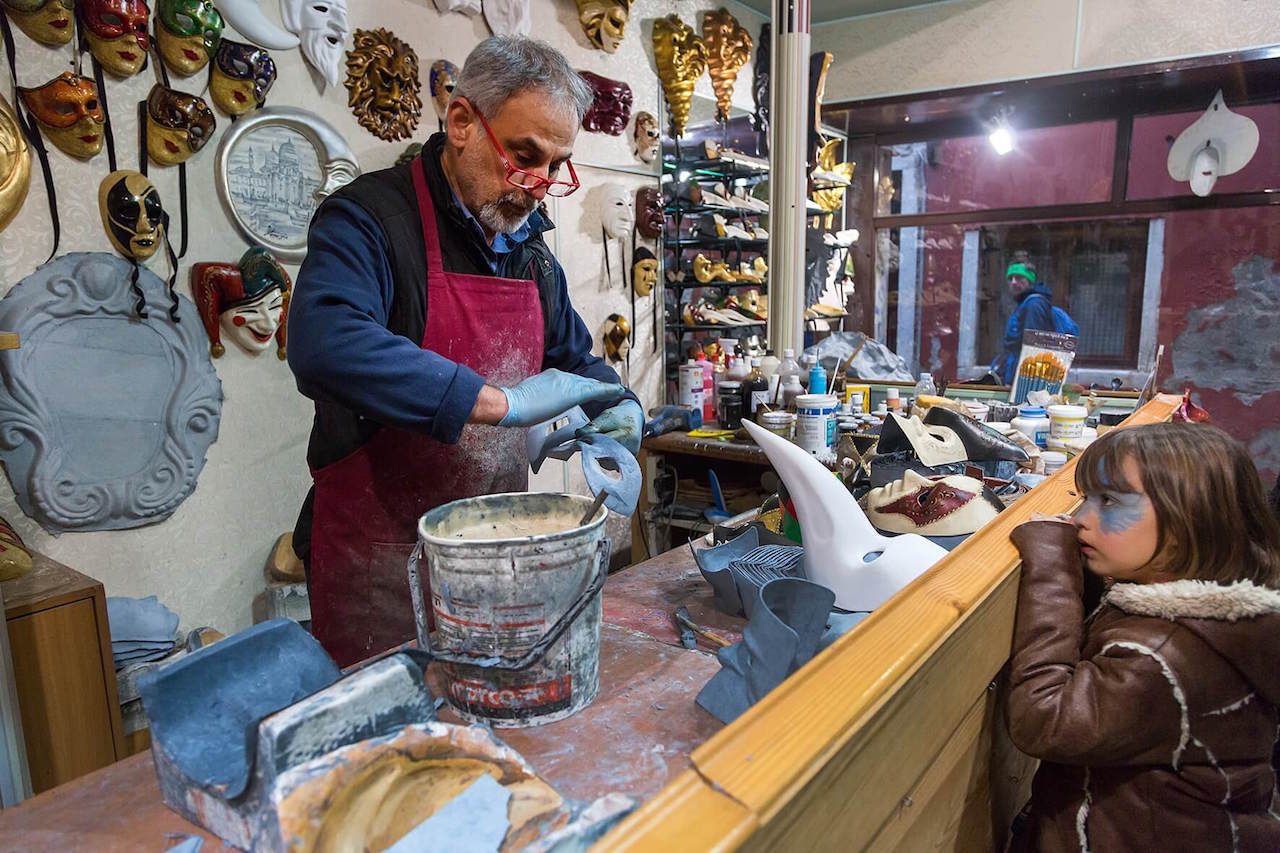
Photo: Venezia Autentica
Busy thoroughfares and squares throughout the city are full of souvenir stands and shops, but their products are just as foreign to the city as the tourists that buy them. Instead, by buying souvenirs that are locally and sustainably made, Duflot explains that you can contribute to “incentivizing the right kind of productions.” Duflot also points out that in doing so you are contributing to wider environmental change. “If we all do it,” she says, “there will be much fewer containers sailing on our precious seas and oceans.”
Aiding visitors to identify local businesses is Duflot’s website, Venezia Autentica, where vetted shops, bars, and restaurants are listed. When meandering the streets, Duflot also encourages visitors to “look for our sticker on their window or door. When you spot it you know that you will be guaranteed quality, authenticity, and impact!”
Venture to less crowded areas.
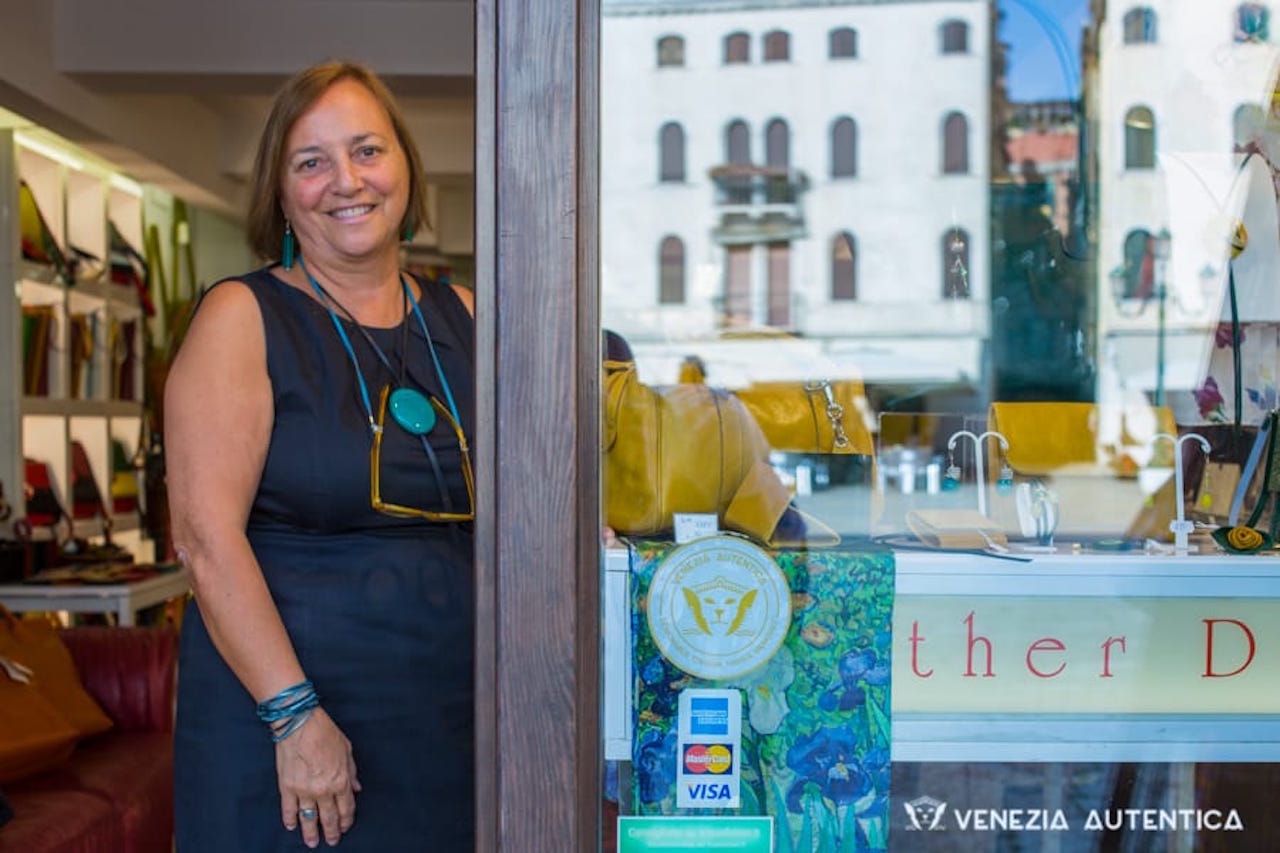
Photo: Venezia Autentica
Congested streets have recently caused Venetian authorities to introduce a camera system to monitor crowds, and at peak tourist season walking to famous sites can be quite a battle. To avoid the crush, Duflot says, “During the day, we encourage you to venture off the beaten path, walking and or using the water buses.” She suggests that if you’re not sure how to go about it then “trying private and authentic activities is a great way to connect deeper with the city and to be loved by locals as you are learning more about their beloved home and do not contribute to the big groups creating so much frustration in town.”
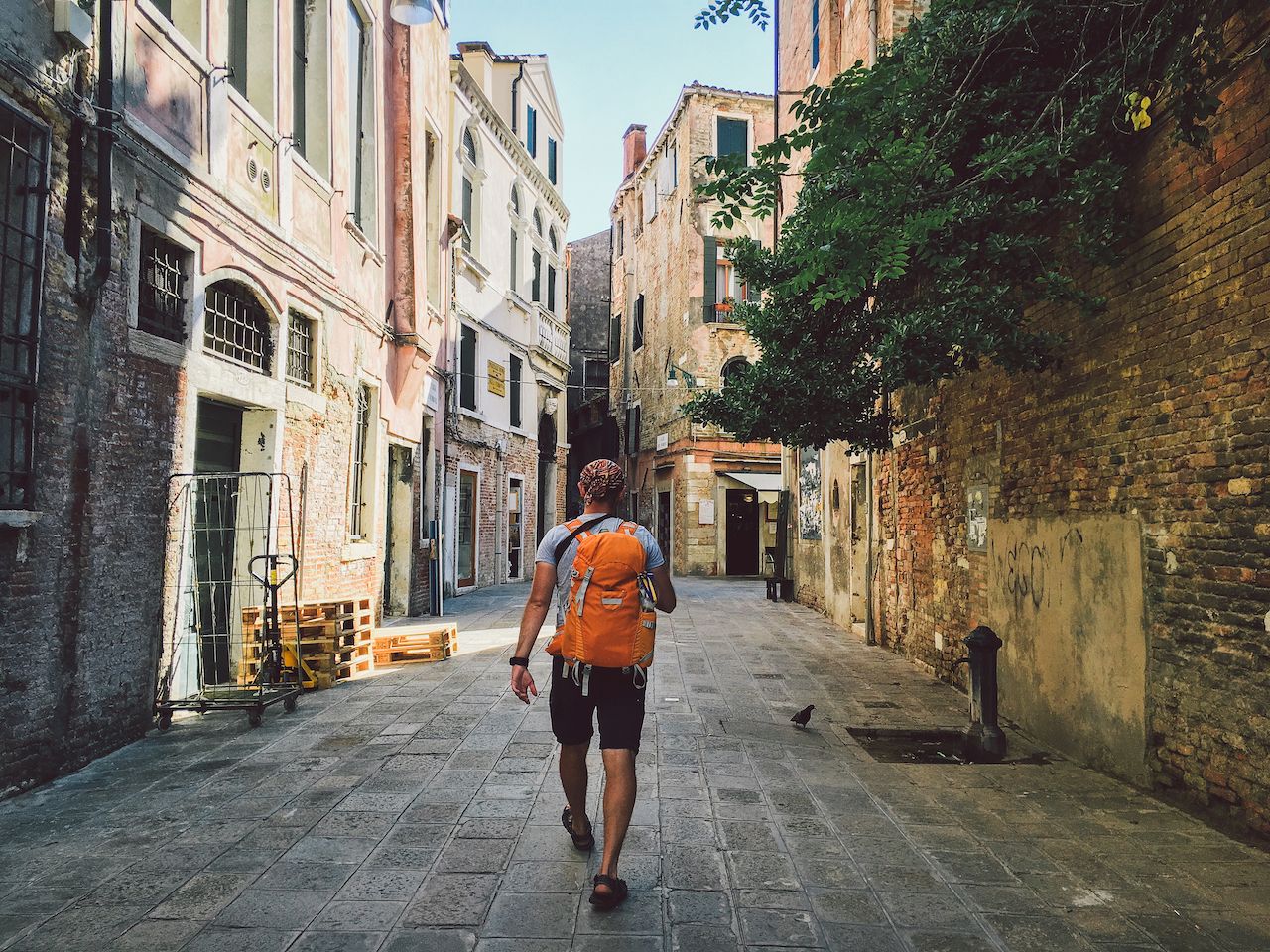
Photo: fotoliza/Shutterstock
Duflot reminds visitors, however, of the importance of making sure that your tour or activity is run by locals in possession of all the due licenses and permits. She affirms that this is “the only way you will be sure to have a quality experience and to make a positive impact as you will not, involuntarily, be encouraging an activity which is causing damages to the city by creating unfair competition to the people who are struggling but doing things by the book.” Again, the Venezia Autentica website lists reliable companies and businesses for tours and boating activities.
Brush up on local knowledge and language.
Finally, Duflot asserts that a little bit of local knowledge can be a great advantage when you’re in the city. She notes that if you read up on attractions before you arrive, you can “discover what aspect of Venice excites you most and know where to spend your time and money when you are here so you can maximize your fun and positive impact.”
She also suggests learning a few words of Italian, so that you can greet people you meet. While walking around, “remind the people you are traveling with to walk to the right side of the street and not to stop on bridges,” she says. “These are small things that greatly improve the quality of life in Venice and you would be surprised how many people do not do them.” It’s worth remembering that the number of tourists flocking to the city each day can often outnumber the residents. Tourists who disrespect local customs or treat Venice like a theme park rather than an inhabited city are a daily headache for residents.
Duflot parting message is, “If we all pay attention to our choices when we travel, we can really build a better world. So, go ahead, start with Venice, make local friends and enjoy your travel knowing that you were, even temporarily, a positive member of the local community.”